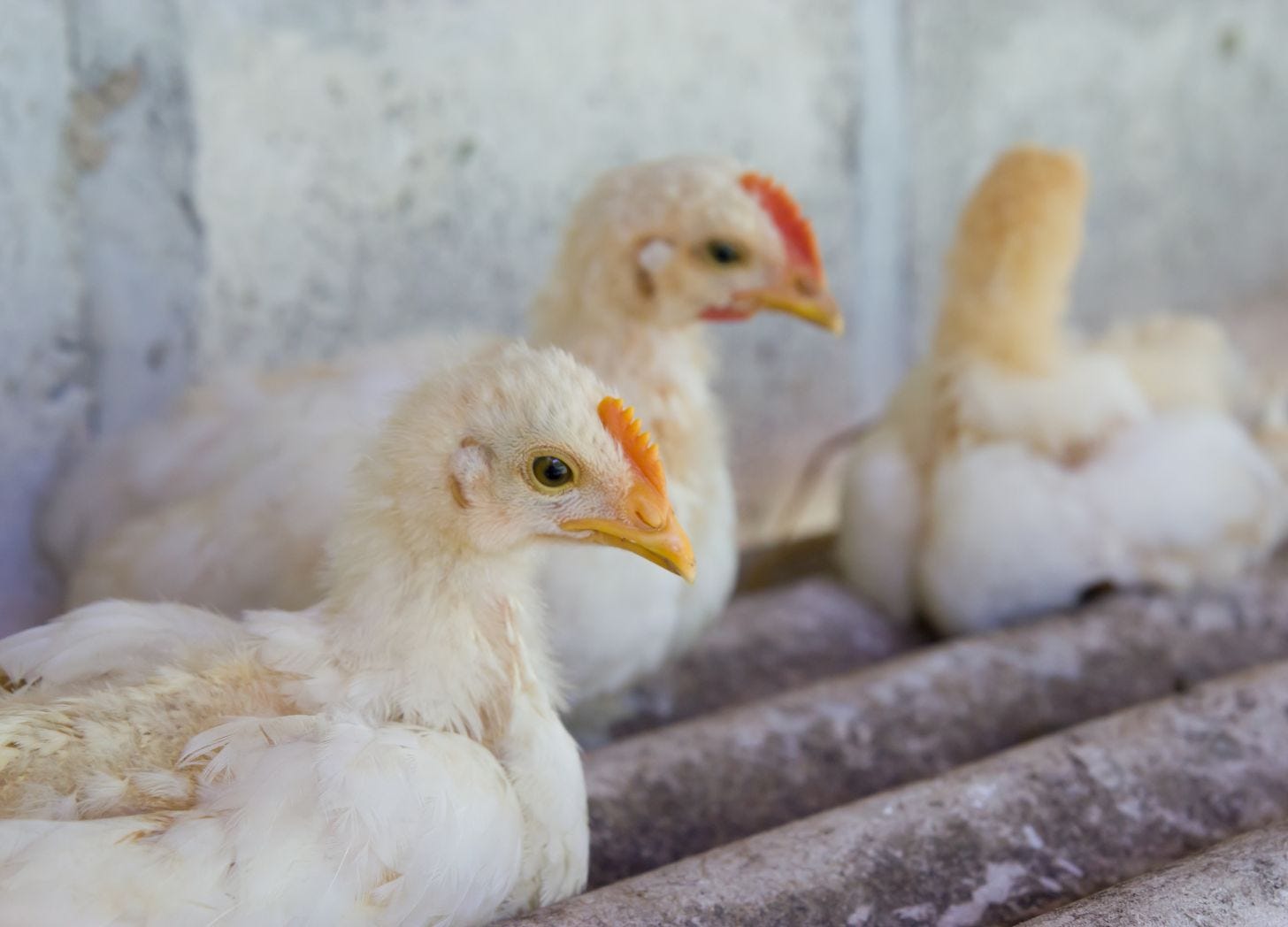💊 J&J’s new incubator in Singapore; India’s new policy for pharma, medtech R&D; The US FDA takes no chances
#437 | A new pork tapeworm vaccine; Genetic structure of rare kidney cancer revealed; Drinking too much? Blame it on climate change
Hello, and welcome back to The Kable. On 9 October, the African Development Bank (AfDB) and the Egyptian African Businessmen’s Association are hosting the Pharmaceutical Investment Forum in Cairo. The forum will offer leading Egyptian pharma firms the chance to learn about the AfDB’s pharma plan, financial offerings, and co-financing opportunities that can support them in making Egypt a pharma hub in Africa. The Islamic Development Bank, Africa CDC, IQVIA, and PATH are some of the orgs expected to be there.
South Africa is facing 50 H7 and 10 H5 avian flu outbreaks. Yesterday, the country said that it has lost at least 107,705 chickens to the disease, while 1,318,521 have been culled so far. The Department of Agriculture, Land Reform and Rural Development is encouraging farms to intensify biosecurity measures and is mulling fast-tracking vaccine registration.
As we mentioned the day before last, reports claim that India is facing a critical TB drug shortage. A collective of TB survivors is concerned about a possible nationwide crisis; it is urging the Ministry of Health and the Prime Minister’s Office to swiftly investigate and address this situation. The Central government, however, claims that media reports of the shortage are ill-informed and misleading.
In neighbouring Sri Lanka, where 227 types of medicines are in short supply, the Ministry of Health has decided to purchase medicines directly from India and Bangladesh.
Uzbekistan, it seems, isn’t getting a break from paediatric health crises. After contaminated cough syrups caused acute kidney injury in dozens of kids last year, 70 children have now been hospitalised with symptoms of poisoning. What caused the illness? They still don’t know. Lab tests are in progress, as is a probe launched by the Prosecutor-General’s Office.
Back in India, which has one of the highest incidences of difficult-to-treat life-threatening fungal infections, Biosergen AB and Alkem Laboratories have inked a co-development and license agreement through phase 2 and 3 trials of BSG005 for the treatment of invasive fungal diseases.
WuXi Biologics is now taking its global expansion spree to China, with subsidiary WuXi Vaccines launching its first standalone CDMO site in Suzhou.
The Global Health Innovative Technology, or GHIT Fund today announced an investment of about $6.2 million in the development of a new malaria vaccine and anti-malarial drug. It also said it would invest another $1.8 million in several new product development projects against neglected tropical diseases, or NTDs. Or NPDs for NTDs, if you will.
Global zoonotic disease concerns are manifesting in India as an increase in scrub typhus, or bush virus cases witnessed in the states of Assam, Maharashtra, and Odisha.
In England, TB cases increased by 7% in the first half of 2023 compared to the same time last year.
And in the US, it’s deadly flesh-eating bacteria that you need to be wary of.
Meanwhile, J&J has entered a first-of-its-kind collab with the Singapore Economic Development Board to boost life sciences innovation in the region. J&J’s incubator JLABS will help early-stage companies in the city-state to develop their discoveries into viable drugs, medical technologies, and other health solutions. This partnership will also foster employment and commercialisation opportunities.
More Big Pharma news comes from Novo Nordisk, which is partnering with Germany’s Evotec to get deeper into cardiometabolic disease drug development. The companies’ new drug discovery accelerator LAB eN² will incubate research from Harvard University, Mass General Brigham, Yale University, and Beth Israel Deaconess Medical Centre. Some programmes from the incubator could result in the formation of new startups or licensing deals from Novo Nordisk.
Merck KGaA’s MilliporeSigma has invested €28 million into two new mRNA drug substance manufacturing plants in Germany. These new facilities will take on a full range of mRNA services, right from pre-clinical to commercial-scale projects, including key products and biosafety testing.
Immunovant yesterday announced positive initial results from its phase 1 trial of IMVT-1402, a drug being developed to fight autoimmune diseases associated with immunoglobulin G autoantibodies.
Amsterdam-based Polpharma Biologics has received European Commission authorization for its Tyruko, the first and only biosimilar for relapsing MS in Europe, which will be commercialised by its partner Sandoz.
Moderna’s contract to supply its Omicron-adjusted Covid vaccines to the EU ended in August last year, but the European Commission is now in talks with the company over a new supply deal.
And finally, the Access to Medicine Foundation has launched its first report on its Generic & Biosimilar Medicines Programme. The report profiles generic and biosimilar medicine manufacturers like Cipla, Sun Pharma and Viatris. It points out that although 90% of WHO-categorised essential medicines are off-patent, generics and biosimilars are still out of reach of many patients in LMICs.
Keep reading with a 7-day free trial
Subscribe to The Kable to keep reading this post and get 7 days of free access to the full post archives.




